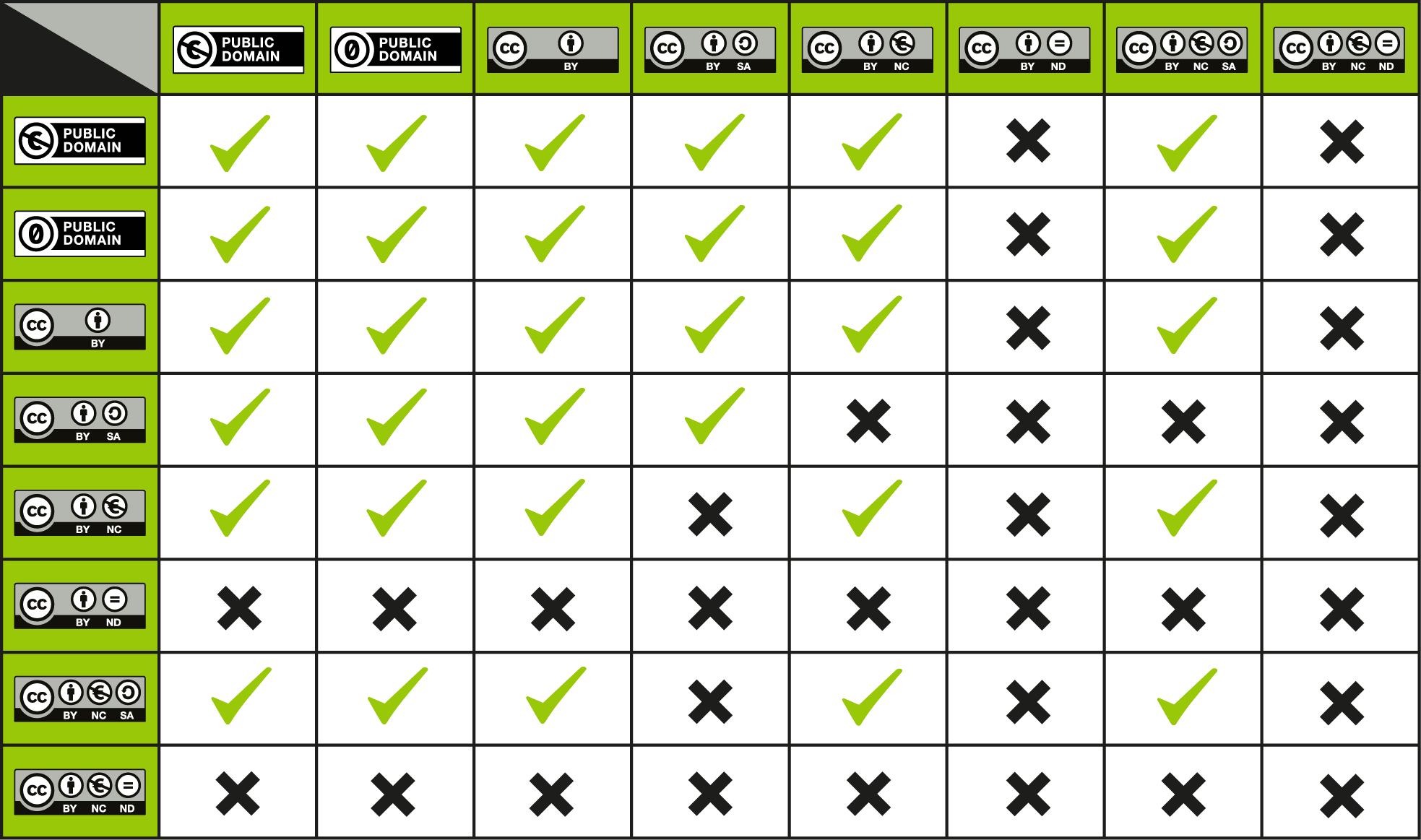
An Adaptation, sometimes called a derivative work or remix, is when you create something with a copyrighted work (or works) to the extent that it is a considered a new work, worthy of its own copyright protection. Not all changes result in a derivative of the original, and it sometimes can be tricky to determine if something is an adaptation or not. Here are some examples:
Is it an adaptation?
| Correcting Spelling | No |
| Translating a work to a different language | Yes |
| Quoting lines of poetry for analysis | No |
| Rearranging lines of a poem and adding your own stanzas | Yes |
| Including a CC-Licensed book in your class curriculum | No |
| Incorporating elements of CC-Licensed books into a class module | Yes |
Making a Smoothie
A metaphor that is often used to distinguish an adaptation/derivative/remix is making a smoothie. When you make a smoothie, the separate parts are put in a blender and combined until you can't tell where one ingredient ends and the next begins. Likewise, when you create an adaptation, the user may not be able to look at the new work and identify the original works as separate entities. The original works have been blended to create something new.
The Creative Commons FAQ Section has a lot of helpful information when it comes to Creative Commons, licensing, and use of CC-Licensed work. Here is what they have to say about adaptations:
An adaptation is a work based on one or more pre-existing works. What constitutes an adaptation depends on applicable law, however translating a work from one language to another or creating a film version of a novel are generally considered adaptations.
In order for an adaptation to be protected by copyright, most national laws require the creator of the adaptation to add original expression to the pre-existing work. However, there is no international standard for originality, and the definition differs depending on the jurisdiction. Civil law jurisdictions (such as Germany and France) tend to require that the work contain an imprint of the adapter’s personality. Common law jurisdictions (such as the U.S. or Canada), on the other hand, tend to have a lower threshold for originality, requiring only a minimal level of creativity and “independent conception.” Some countries approach originality completely differently. For example, Brazil’s copyright code protects all works of the mind that do not fall within the list of works that are expressly defined in the statue as “unprotected works.” Consult your jurisdiction’s copyright law for more information.
"What is an adaptation?" by Creative Commons is licensed under a Creative Commons Attribution 4.0 International license.
Remember, if you use a CC-Licensed work you have to pay attention to which CC-License it is published under and respect the guidelines accordingly. Here are some important aspects to keep in mind:

To use the chart, find a license that applies to one of the works on the left column and the license that applies to the other work on the top right row. If there is a check mark in the box where that row and column intersect, then the works under those two licenses can be remixed. If there is an “X” in the box, then the works may not be remixed unless an exception or limitation applies.
"CC License Compatibility Chart" by Creative Commons is licensed under a Creative Commons Attribution 4.0 International license.
Creative Commons. (n.d.). Creative commons certificate for educators, academic librarians and GLAM. https://certificates.creativecommons.org/cccertedu/

"Creative Commons: Adaptations/Derivatives/Remixes" by Danielle Campbell is licensed under a Creative Commons Attribution-NonCommercial 4.0 International License.